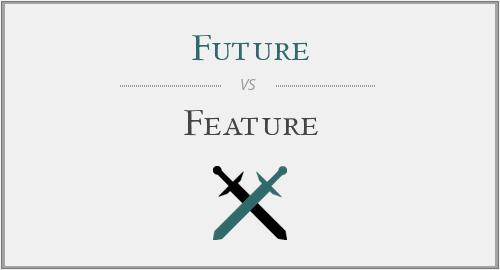Future
Perhaps, we use the word ‘future’ everyday to refer to what is going to happen next. Future is a time after the present (now). In English (and other languages), future is a verb tense that indicates a time which is yet to come. Future is uncertain i.e. we cannot say what is going to happen – for example, in future, it may rain or it may not. Future can be used to refer to a time immediately after or a time after a few years.
Future is an adjective and its origin is from the Latin word ‘fu’ meaning grow or become and ‘esse’ (meaning be), which became future in the late middle English. It is pronounced as ‘few-chur’.
Some example usages of the word future are:
· I don’t want to see this kind of behaviour in future (from the next time onwards).
· The future of the company is uncertain with the kind of projects we are getting now. (the next 2-3 years or more)
· I went out for dinner with my future wife. (yet to be)
· If you don’t follow the laws of Karma, you will have a bad future life. (your next life, or life after death).
· All the future events will take place in the new auditorium. (not yet decided, but whenever it happens)
Phrases:
Near future: We use the phrase to refer to a time that follows the present. For example, “I don’t see myself going out anywhere in the near future, because of the pandemic.”, “We are planning to conduct online exams in the near future.”
In future: In future means from the next time onwards or now onwards. For example, “In future, be careful while talking to strangers.”, “I wouldn’t repeat this mistake in future.”
Feature
Feature is a noun that can be used in many contexts. It can refer to a specific characteristic of a person or thing, or something that is offered as a special attraction. For example,

· She has very sharp features (refers to facial features like nose, eyes etc.)
· The developer has added a new feature in the app where you can star the messages you want to see later. (a new characteristic on the app)
· My article has been featuring on their website for 2 consecutive weeks now. (shown as a special attraction or bonus item)
· The film features two new artists.
· The cartoon was featured in many magazines as it conveys a good social message.
The origin of feature was from the Latin word ‘factura’ which became feature in the late middle English. It is pronounced as ‘fee-chur’.
Feature film: It is a full-length film which is shown as the main item in a cinema program.
Feature story: It is the most prominent or important story of a newspaper or a magazine and mostly a report, story, article about a person or event written by someone in their unique style.
Remember feature as something that is highlighted or given some prominence or importance.
To summarize, here is a sentence that will make all your doubts about future and feature go away:
“If you work hard now, your work will be featured in many good magazines and channels in the future.”




Have a discussion about this article with the community:
Report Comment
We're doing our best to make sure our content is useful, accurate and safe.
If by any chance you spot an inappropriate comment while navigating through our website please use this form to let us know, and we'll take care of it shortly.
Attachment
You need to be logged in to favorite.
Log In